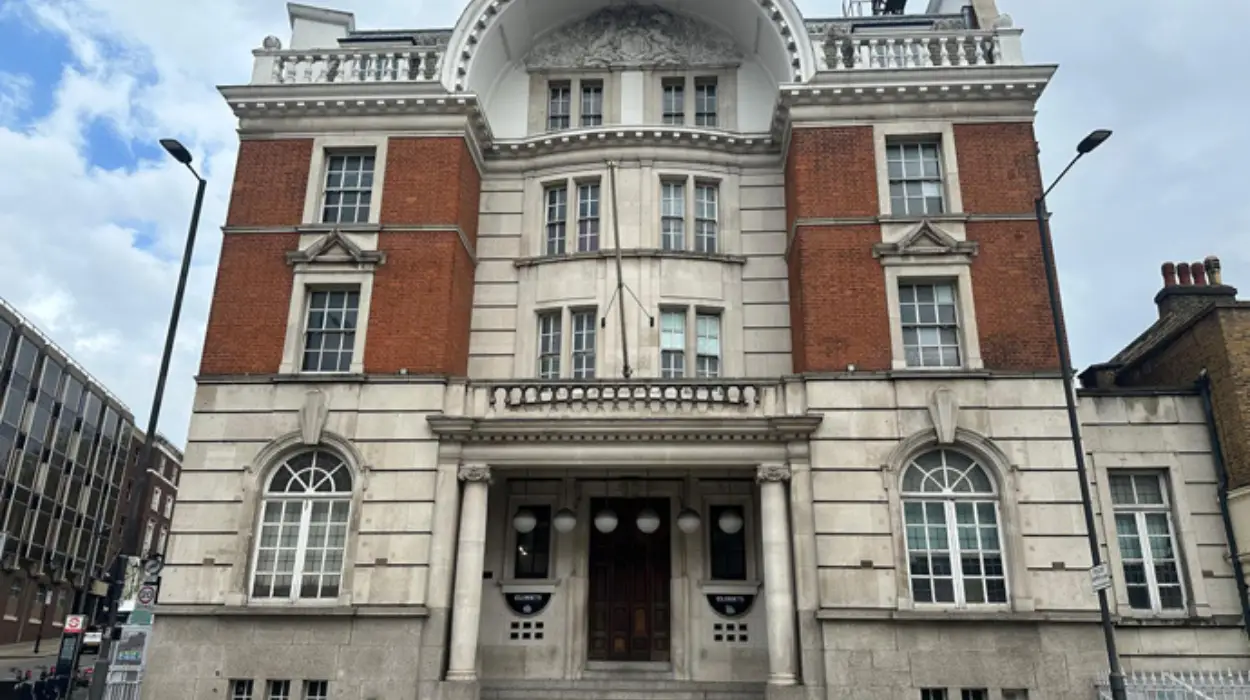Islington (Parliament Politics Magazine) – A notorious hostel in Islington housing hundreds of asylum seekers has been shut down, with residents given just three days’ notice before relocation.
More than 200 residents of Clink78 in King’s Cross, some of whom had been sleeping there for nearly three years, were instructed to pack up their belongings and moved last week to a number of hotels, either in London or the South East.
The council’s environmental standards team conducted an inquiry and determined that some of the rooms were too tiny for habitation, leading to the closure a few months later.
Mo Naeimi, a refugee who now works at a charity helping fellow asylum seekers, said:
“That place was horrible, it was a really nasty place for people to live. I’m so delighted that many of those people are at least in a better place.
Anywhere in the UK is better than that place. I always thought that if I were in Clink, I would rather be homeless than sleep there”.
As previously reported by The Tribune, the hostel’s “vile” conditions led to a rise in mental illness rates, with some men even attempting self-harm.
Up to eight guys were expected to share a room at Clink78, a former legal building converted into a backpacker hostel; some of the rooms were windowless.
In addition to rain pouring through an unrepaired leak in the ceiling of the common room, residents reported receiving moldy food that had been made in a kitchen that was infested with rodents.
Council insiders claim that Town Hall personnel and council members had continuously voiced concerns regarding the hostel’s unfitness for government use.
Mr Naeimi said:
“From the moment that I was in the hostels, I was working with other charities and organisations and the council. We’ve tried so hard to show the government that this place is not standard, it’s hurting people.”
Councillor Heather Staff, the Town Hall’s migrant champion, told the Tribune:
“It’s slightly frustrating that it’s taken so long. Standards could have been improved, particularly by the contractor. We’re happy about it closing, it’s the right thing, but equally, why did we get here?”
She added:
“It just wasn’t fit for purpose. If you’re looking at a very short-term thing, then maybe. Hostels and sharing with people you don’t know and have never met – maybe you can get away with a couple days, a month or two. But a year, two years? That’s outrageous.”
According to council sources, the hostel was designated for closure by the Home Office in late 2024. However, just three days before the move, tenants were informed of their new site by Clearsprings, the organization the government hired to run the hostel.
Mr Naeimi said:
“People didn’t have enough time to arrange the stuff that they had and to know about the location they are going to be sent. People are used to living in London and then they move to other places and it’s hard for them to create that community again.
It’s hard for people to adapt to the situation. They were told they could only bring two bags of stuff. It is a horrible situation. The only positive thing is that they got rid of that place.”
Elizabeth, a charity worker who provides support to asylum seekers in Islington, said:
“I think how late it was that they were told caused so much unnecessary stress. If they’d known, they could have found support for their – colleges, courses, charities.”
She added:
“It’s really difficult, especially when friendship groups are broken up. But people are finding that when they got there, it was better than they expected. So there were some really upset people beforehand and now most people seem to be alright.”
Cllr Staff said that contractors, like Clearsprings, needed to “pull their socks up”.
She added that she would like the contractors to be brought before the Home Affairs Select Committee more often.
There should be a high degree of accountability and responsibility. Responsibility to run a good accommodation, care of the people involved. You’re still a person and you should be treated with the dignity you deserve.
The Home Office said that this government is delivering on its commitment to close asylum hotels, significantly reducing costs to the taxpayer and returning control to local communities.
Clearsprings declined to comment.
What improvements are made to ensure better living for Asylum seekers in Islington?
The provision of more secure housing, improved support services, community inclusion, and strategic partnerships are the main initiatives aimed at improving the living conditions for asylum seekers in Islington.
Asylum seekers are currently housed, fed, and given a tiny weekly allowance by the Home Office, frequently in makeshift hostels or emergency motels. Although the government intended for temporary housing to be temporary, many asylum seekers have been living there for more than two years.
In an effort to lessen dependency on temporary housing, Islington Council has acquired more than 400 council properties to house vulnerable populations, such as refugees and asylum seekers, with funds from the London Authority and Department for Levelling Up, Housing, and Communities.
For asylum seekers residing in temporary housing, local nonprofits like Union Chapel and Health Prom offer welfare assistance.


